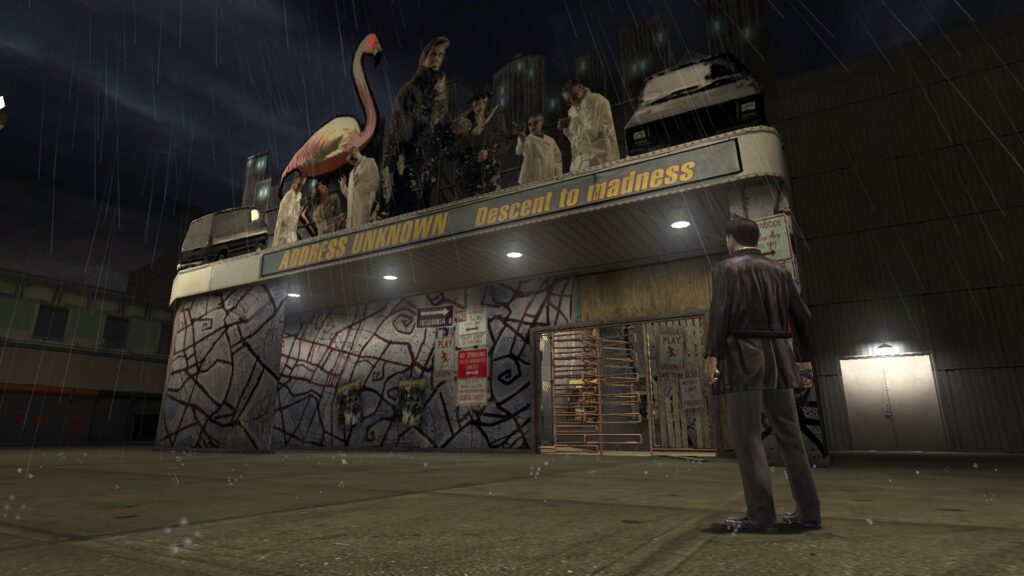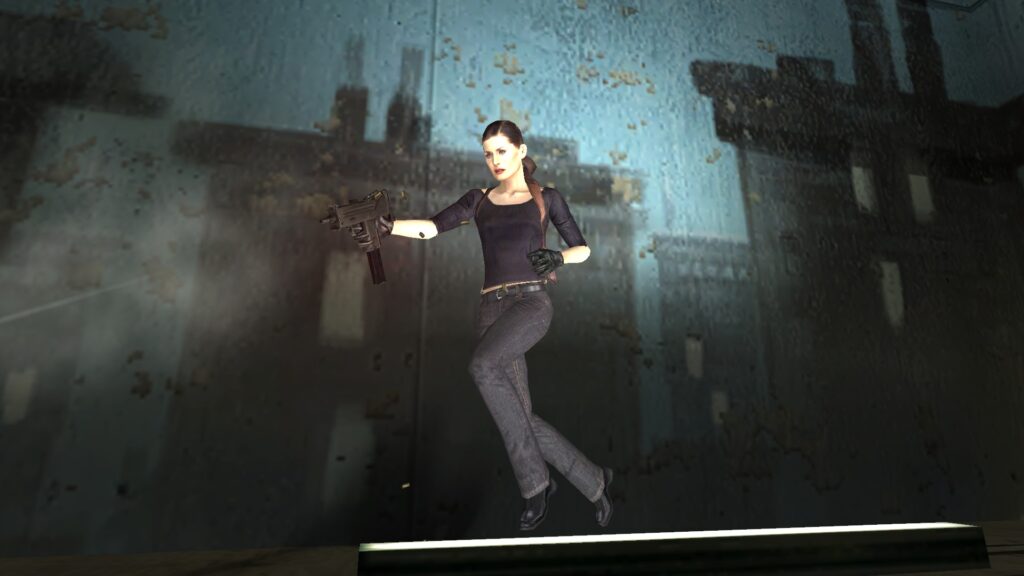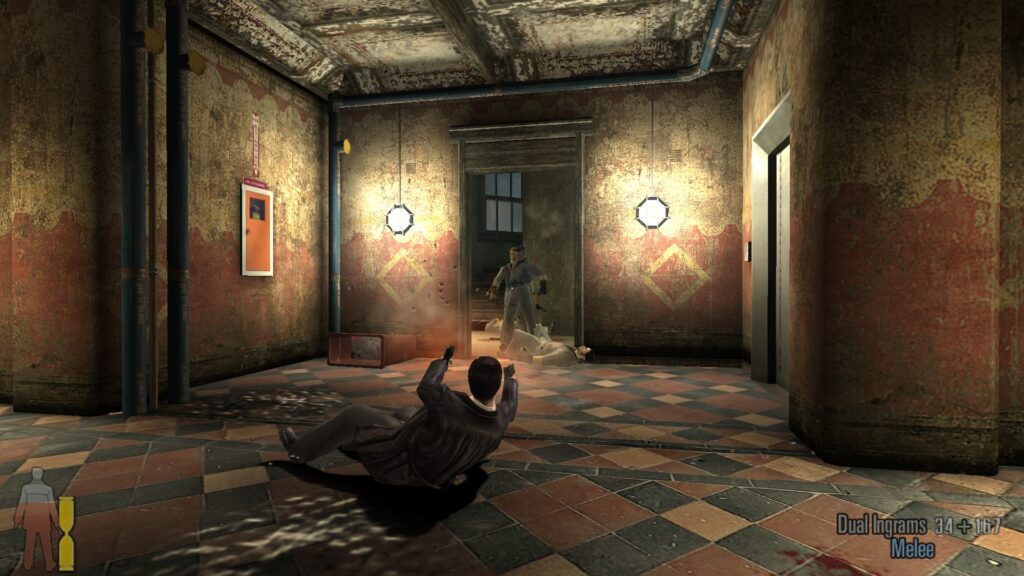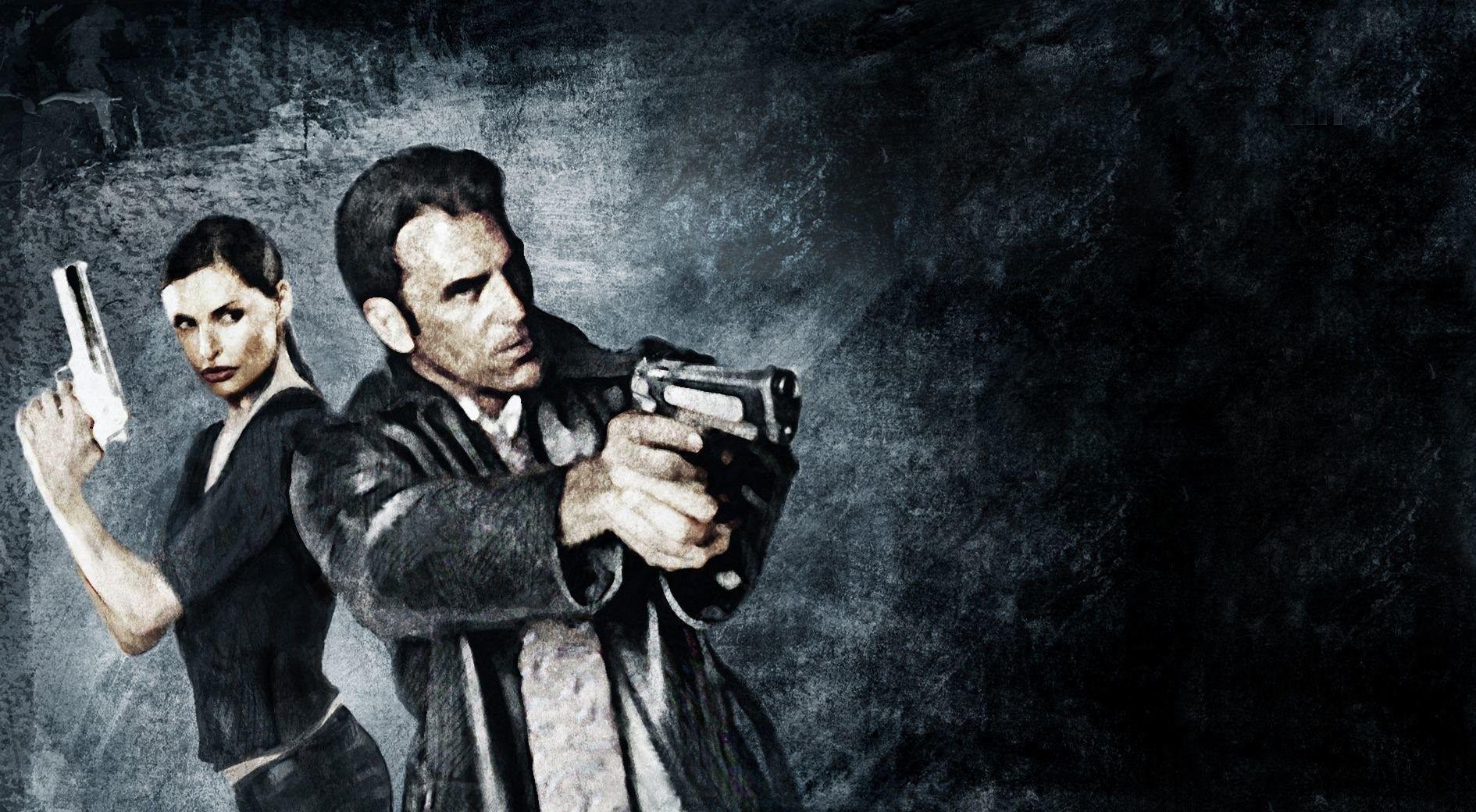It’s 20 years since Remedy Entertainment delivered Max Payne 2: The Fall of Max Payne. An even more ambitious and cinematic successor to the 2001 original, the sequel earned strong reviews in 2003 but sold surprisingly poorly. Two decades on from its debut, Andy Johnson and Gareth Brading revisit the game, re-assessing its legacy in light of Remedy’s later work and a changed gaming landscape.
AJ: I still have my boxed copy of Max Payne 2, although it’s a bit worse for wear. I was a huge fan of Max Payne, and in 2003 I was struck by the technical leaps Remedy had made with the sequel. The original was easily one of the best-looking games of 2001, and the follow-up had even better visuals and was a major leap in terms of physics, too. Can you recall your first encounter with Max Payne 2?
GB: I think I first played Max Payne 2 shortly after playing the first game actually, probably in 2004. I had bought a compilation pack called “Maximum Underworld” which contained the original Mafia, and the original Max Payne. After playing through the first game, I knew I had to immediately play the sequel. But likewise, I have the beautiful black-on-white boxed copy of the game, which I see came on 3 CDs; two install discs and one play disc. To think that the entire game is only 1.5GB!
I certainly remember at the time recognizing what a gigantic leap in technology and presentation Max Payne 2 represented. Although the comic book cutscenes were still present, there were also some in-game cutscenes and a general cinematic presentation which felt really dramatic, all the way from the very first scene starting in medias res with an injured Max at the hospital. What did you feel about the story, overall?

AJ: I’ve always had mixed feelings about the story for the sequel. It is a simple story told in a complicated way, and I think it would have preferred the reverse. It was an interesting choice for Remedy to build much of the narrative around Mona Sax, a very minor character from Max Payne that many players could have forgotten about. The first time I played the game, I remember being surprised to be given control over Mona. It is a short section, and she plays almost identically to Max, but it still makes a change.
Max Payne is essentially a playable action movie and Max Payne 2 takes this even further – it is even more cinematic and the brief in-engine cutscenes are impressive for 2003. Do you feel that it lives up to the awkward sub-sub-title “A Film Noir Love Story”? And what did you make of the changes to the gameplay?
GB: Yeah I always thought Max’s relationship with Mona was not particularly well fleshed out; I get that she returns from the first game, but she appears so briefly there you don’t really get a sense of her motivations. But I guess for a troubled soul like Max Payne, his infatuation is somewhat understandable. It has elements of film noir, but kind of feels like its own thing. I did appreciate being able to play as her, even though as you said she plays identically to Max.
For gameplay I really appreciated how Bullet Time was adjusted, meaning that it slowed down the more enemies you killed, eventually turning Max into just a slo-mo killing machine. I think it no longer drained Bullet Time to do shootdodging either, which made it a lot more reliable. But the satisfaction to be had by activating Bullet Time and then completely decimating the place, full of splintered bits of furniture and other objects, absolutely scratched that itch of wanting to recreate fights from The Matrix. I remember at the time people criticised the game as too short; did you think that at the time?

AJ: The difference that Havok physics makes is very large, for sure. It is quite comical how obviously Remedy created situations that would result in splashy physics interactions. That really dates Max Payne 2 to a particular era – of course Half-Life 2 would take it even further the following year. The slicker gunfights in the sequel capture not just The Matrix feeling but also the balletic ultraviolence of John Woo’s best movies.
The brevity of the game certainly was a common criticism in 2003 and perhaps a justified one. Max Payne 2 is significantly shorter than the first game, and can feel as if it isn’t given time to breathe. The game sold quite poorly at the time, and the widespread disappointment about its length may have been a factor. What do you think explains its commercial failure?
GB: I think the reviews at the time did mention the game being short, which no doubt put some players off. But I also think that the game releasing the same month as the first Call of Duty probably did not help matters, with it quickly becoming a smash-hit phenomenon. I’m not sure if those factors fully explain its commercial failure though. Perhaps the original game benefitted by its proximity to the release of the first Matrix film, which helped to bolster sales by word-of-mouth, while Max Payne 2 didn’t get that kind of boost.
That said, Max Payne 2 is still absolutely one of my all-time favourites; that main menu music is so iconic. I am very much looking forward to the remakes of Max Payne 1 and 2, which are hopefully coming next year on Remedy’s Northlight engine (used for Control and this year’s Alan Wake II). I hope they keep them relatively faithful though, just improving the graphics but retaining the gameplay, comic book cutscenes and original voice acting (which can sometimes be a bit hokey, especially in the first game, but that’s part of the charm).

AJ: For my part, I think that Max Payne 2 was marketed in an odd way. The “A Film Noir Love Story” tagline was neither very accurate nor particularly attractive for what is really a high-octane action game. The black and white cover art is striking, but also possibly not the best choice to encourage sales. The lack of multiplayer may also have been a factor.
Max Payne 2 is a superb game from an era I miss. It has the simplicity, economy, and directness that is absent from most third-person action games of recent years. Take Remedy’s own Control (2019), for example – I’d argue that a lot of its systems detract from, rather than add to, the core experience. Max wouldn’t be caught dead reading a bunch of documents, or chasing after resources to upgrade his guns.
I hope that Remedy approach the remakes in a similar way to how Hangar 13 tackled their 2020 remake of Mafia (2002), which you mentioned earlier. They really enhanced the visuals and storytelling, while retaining the straightforwardness of the gameplay.
GB: Agreed, the remake of Mafia is a good benchmark for how I hope the remakes turn out. And with Alan Wake II out later this month we’re definitely not going to be short for content from Remedy Entertainment for a while yet. I disagree regarding Control, but then again I even really liked Quantum Break, which it’s probably Remedy’s least critically successful game ever. But hopefully the remakes of Max Payne 1 and 2 will reawaken this franchise to a new generation who might not have bothered to go back to the originals. And hey, never say never for a Max Payne 4, even allowing for how the Rockstar-developed Max Payne 3 ended…





